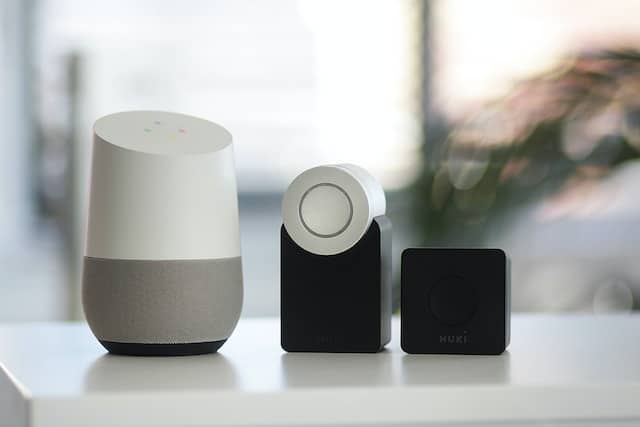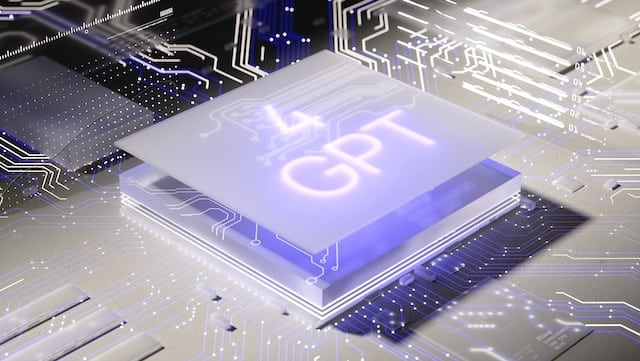The Power of AI in Smart Speakers: Revolutionizing Convenience and Healthcare
In our fast-paced world, where technology seems to evolve as we blink, one innovation stands out – smart speakers. You might have heard of them – devices like Amazon Echo and Google Home that listen to our commands and play our favorite tunes. But there’s more to these gadgets than meets the ear. They’re powered by something called Artificial Intelligence (AI), and AI in smart speakers is changing the way we live and even how we take care of our health.
Imagine this: you walk into your home, tired from a long day. Instead of fumbling for the light switch, you say, “Hey, Alexa, turn on the lights.” And poof! The lights come on. That’s AI in action. These smart speakers can understand our words, process them, and then perform tasks – all thanks to AI.
But what’s even cooler is how they’re becoming our health buddies. Researchers at the University of Washington have figured out a way for smart speakers to listen to our heartbeats – yes, you read that right, our heartbeats – without even touching us. They send out sounds that we can’t hear, and then they listen for how those sounds bounce back. And guess what? They can tell when our heart beats, and if it’s beating regularly or not. This is a huge deal for healthcare, as it can help detect heart problems early, right from the comfort of our own homes.
Now, let’s break down the tech behind it. You see, there are two kinds of recognition: voice recognition and speech recognition. Voice recognition figures out who’s speaking, while speech recognition understands what’s being said. It’s like a secret codebreaker for our words. These smart speakers use speech recognition to understand our commands and respond to them. It’s like having a mini robot friend who can talk to us.
But the heart-monitoring part is where things get mind-blowing. Imagine your heart’s teeny-tiny movements being picked up by a smart speaker. This magic is done by sending out sound waves, kind of like throwing a pebble into a pond and watching the ripples. The speaker sends out sound, it bounces off us, and then the speaker listens carefully to how it comes back. That’s how it knows our heart is doing its thump-thump dance.
What’s really amazing is how smart speakers learn to tell the difference between regular and irregular heartbeats. This is where AI and machine learning come to the rescue. Machine learning is like teaching your pet to do tricks – it learns from experience. The smart speaker listens to lots of heartbeats and figures out their patterns. Then, when it hears a new heartbeat, it compares it to what it’s learned. If it’s a regular heartbeat, it says, “All good!” If it’s irregular, it’s like a little alarm going off, saying, “Hey, something might be up!”
Now, here’s the real kicker – these smart speakers are almost as good as the fancy heartbeat monitors doctors use. They tested them on healthy folks and patients with heart problems. The smart speakers detected heartbeats just like the pros! This could be a game-changer for healthcare. Imagine not having to go to the doctor every time your heart feels funny. You could just chat with your smart speaker and get a check-up right then and there.
But it’s not just about health. Smart speakers are making our lives easier in many ways. They can turn our homes into cozy nests with just a word. They can play our favorite songs, tell us the weather, and even tell jokes. They’re like a personal assistant that’s always ready to help.
However, like any superhero, smart speakers do have their challenges. They need lots of data to learn from, just like we need books to learn new things. Also, they have to understand all the different ways we talk – accents, dialects, and even when we’re asking questions in a funny way. Imagine if you said, “Will it rain this afternoon?” and your smart speaker had no clue what you meant! So, scientists are working hard to make them even smarter and better at understanding us.
In the end, AI in smart speakers is more than just a fancy gadget. It’s changing the way we live, making our lives comfier, and even helping us stay healthier. Who knew that these tiny devices could have such a big impact? So, next time you say, “Hey, Alexa,” remember that you’re not just talking to a machine – you’re talking to the future of technology, right in your living room.
References:
- https://healthcare-in-europe.com/en/news/ai-uses-smart-speakers-for-contactless-cardiac-monitoring.html
- https://aibusiness.com/nlp/how-smart-speakers-work
- https://www.forbes.com/sites/forbestechcouncil/2019/07/08/the-rise-of-ai-enabled-smart-speakers-and-their-future-in-our-lives/?sh=2d44b38a35ab
- https://www.nature.com/articles/s42003-021-01824-9







